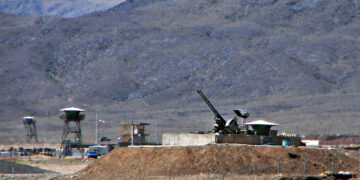
While near the Israel-Gaza border fence on Nov. 13, Israeli Prime Minister Benjamin Netanyahu had a message to the Israeli forces deployed there: The war against Hamas will go on until victory. “This is neither an ‘operation’ nor a ’round,’ but a war to the end,” he said.
What he meant by “the end” is clear enough. What he plans to do the day after, much less so.
Even as the Israel Defense Forces comb through a still densely-populated northern Gaza, Netanyahu still doesn’t have a firm grasp on what happens after the fighting ends.
Netanyahu’s own coalition doesn’t seem to be on the same page about what a post-Hamas Gaza will look like. During the second week of the Israeli military campaign, Israeli Foreign Minister Eli Cohen stressed that Gaza’s territory would “decrease.” Mark Regev, Netanyahu’s senior adviser, insisted that Israel doesn’t want to control Gaza but would demand further security measures, like a bigger buffer zone, to ensure Israel’s southern communities were safer than they were on Oct. 7, when Hamas militants killed 1,200 people. Israeli Defense Minister Yoav Gallant has suggested that Israel wants nothing to do with Gaza in any way, shape, or form after Hamas’ military capacity is destroyed. Others in Netanyahu’s far-right coalition allies are on the other end of the spectrum, flirting with the concept of rebuilding the settlements former Prime Minister Ariel Sharon dismantled in 2005.
More on Middle East

Featuring Rosemary Kelanic
October 16, 2025
Featuring Daniel Davis
October 15, 2025
Events on Israel






